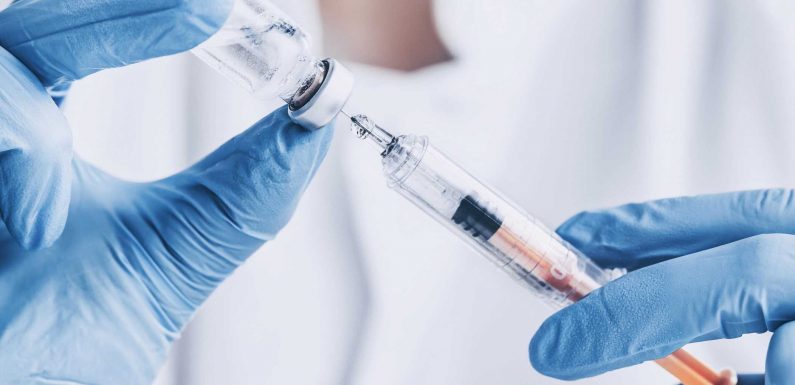
WITH pollen levels soaring this week, Brits will be keen to find the best remedy.
For those with a more serious case of hay fever, injections may be the answer.
Hay fever is one of the most common allergic conditions, with more than 10 million people with the condition in England alone.
Sufferers become reliant on antihistamines, eye drops, wipes and various hacks to keep the home pollen-free.
The allergy can ruin the sunny season, making work and daily life difficult.
So if there was a convenient, single injection to take it all away, most would jump at the chance.
The jabs generally work to stop the immune system going haywire whenever it is faced with pollen.
While jabs seem like the “cure” to sneezing, itchy eyes and fatigue, there is not a huge amount of evidence they work.
They are also not available to the majority of people with hay fever.
Here we explain what hay fever injections are available and to who:
Steroid injections
Corticosteroids (steroids) can be prescribed to treat persistent hay fever that doesn’t respond to antihistamines.
A steroid injection, called Kenalog, is given to some people with severe hay fever in the UK, administered in their buttocks.
But is only available privately, costing around £75 per dose, the effects of which kick in almost immediately and last around three months.
The injection used to be available on the NHS and commonly given out. But from 1999, doctors were recommended to stop giving it out because there was unclear evidence it worked well
A Drug and Therapeutics Bulletin (DTB) in 1999 concluded that a single dose is likely to relieve hay fever symptoms, but it is unclear for how long any benefit is likely to last.
Unwanted side effects might develop, including raised blood pressure, skin rashes, muscle weakness, welling, breathing difficulties and stomach pain.
Leading charity Allergy UK does not endorse the jab because it “comes with a high side-effect profile”, Patient Info reports.
But the Regent Street Clinic, which offers the jab at sites across England, says on its website: “In our twenty-year experience of administering the hayfever injection, we have seen virtually nothing in the way of even mild ‘side effects’.”
The anti-inflammatory drug is also used for arthritis, gout, certain cancers and skin diseases.
It works by suppressing the body's immune response to histamines – which is what causes symptoms of sneezing, itching and more.
Other steroid medications that are available on the NHS and may be prescribed by your GP are nasal sprays and drops.
Nasal sprays are most effective if you start using them a couple of weeks before your symptoms begin, and work best when used regularly.
But drops should not be used for more than four weeks and not using them properly could leave you suffering bleeding, irritation and dryness of the nose.
Immunotherapy injections
If standard hay fever treatments do not work, your GP may refer you for immunotherapy.
Hay fever is an allergic reaction, so immunotherapy treatment aims to suppress this reaction over time.
You'll be given small amounts of pollen as an injection (systemic injection immunotherapy) or tablet (sublingual immunotherapy) to slowly build up your immunity to pollen, the NHS says.
As you get used to the allergen, the amount used will slowly be increased, boosting tolerance against the allergen.
But it probably won’t be of use now – this treatment starts in the winter, around three months before hay fever season begins, so that it has some effect by the summer.
It can take years for the treatment to work, too. It generally shows very good results, and these should become clear within the first year.
Immunotherapy is a specialist service that may not be available everywhere in the UK.
And not everyone plagued with hayfever will be suitable for the treatment, with a specialist assessing if you should have it.
Over-the-counter and self help tips
If a hayfever injection is sounding out of your reach, there are lots of treatments you can try from the pharmacist.
These include antihistamines, nasal sprays, eye drops and wipes.
Also try to:
- wear wraparound sunglasses to stop pollen getting in your eyes when you're outdoors
- taking a shower and changing your clothes after being outdoors to remove the pollen on your body
- staying indoors when the pollen count is high
- applying a small amount of Vaseline around the nostrils to stop pollen getting in
Source: Read Full Article


